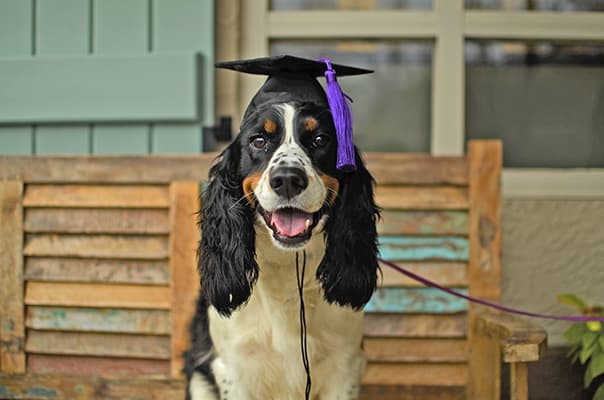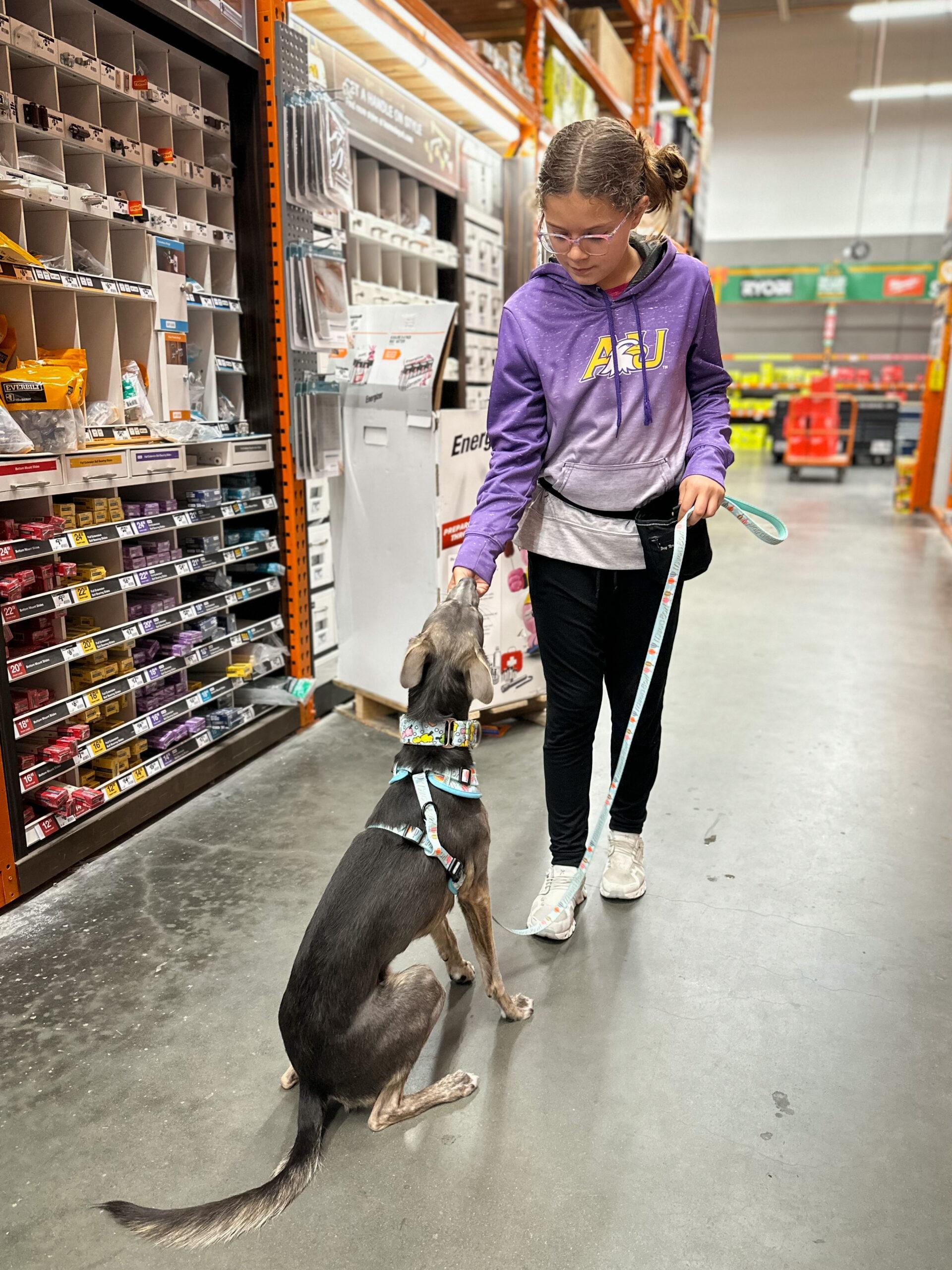Discover the Leading Blunders to Stay Clear Of in Dog Training
Discover the Leading Blunders to Stay Clear Of in Dog Training
Blog Article
Unlock Your Dog's Prospective With Reliable Educating Methods
Reliable training strategies can dramatically boost your pet's potential, changing not just their habits but also the bond you share. Understanding your pet's specific demands is vital, as it enables for tailored approaches that reverberate with their individuality.
Comprehending Your Dog's Demands
To properly educate your pet dog, understanding its demands is extremely important. Each pet dog is distinct, possessing distinct personality type, temperaments, and histories that affect its behavior and finding out capability. Identifying these private differences is important for customizing training techniques to ensure success.
First, analyze your pet dog's energy, type, and age level - dog training. Pups, as an example, call for shorter training sessions as a result of their restricted attention spans, while high-energy types may require a lot more vigorous tasks to stay engaged. Additionally, comprehending your pet dog's socializing needs is vital; some canines flourish in group settings, while others might choose individually communications
In addition, know your pet dog's mood. Anxiety, anxiety, or stress can restrain learning, requiring an atmosphere where your pet dog feels protected. Establishing a routine can additionally provide structure, which is valuable for many dogs.
Last but not least, focus on your canine's physical health and wellness, as pain or discomfort can dramatically affect behavior and learning capabilities. By thoroughly comprehending your canine's requirements, you lay the foundation for effective training, fostering a positive relationship and enhancing total health.
Favorable Support Techniques
Positive reinforcement methods are among one of the most reliable training methods for pet dogs, promoting a positive learning environment. This approach entails fulfilling preferred habits rather than penalizing undesirable ones, which motivates canines to duplicate those actions. Benefits can take various forms, such as deals with, praise, toys, and even play, permitting personalization based on what encourages each private canine.

Furthermore, positive support can improve the bond between the canine and proprietor, as it promotes depend on and urges open interaction. Owners can gradually eliminate treats as the habits becomes embedded, transitioning to spoken praise or love as the main benefits.
Uniformity in Training
A regular training technique is crucial for effective pet training, as it develops clear expectations and assists canines understand what behaviors are urged. Consistency includes making use of the very same commands, cues, and awards throughout various training sessions, which strengthens and cultivates a solid understanding learning. When commands are provided inconsistently, pet dogs might come to be overwhelmed, leading to stress for both the proprietor and the pet dog.
It is essential to guarantee that all family participants or people engaging with the pet utilize the same terms and training strategies. This uniformity stops combined signals that can hinder a canine's capability to discover. Furthermore, strengthening preferred habits quickly and consistently with positive incentives, such as deals with or appreciation, strengthens the link between the action and the outcome.
Uniformity in training creates a reliable structure that dogs can flourish within, ultimately leading to a well-behaved and well-adjusted pet. By devoting to a constant approach, proprietors can unlock their pet dog's full possibility and enhance the bond between them.
Socializing Techniques
While several canine proprietors focus largely on obedience training, socialization strategies are similarly essential for a canine's overall advancement. Socialization includes revealing canines to a selection of environments, individuals, and other animals in a regulated way, allowing them to end up being comfy and confident in varied situations.
To begin socialization, start early ideally, as young puppies are most impressionable between 3 to 14 weeks of age. Introduce your puppy to different stimulations, such as numerous audios, textures, and sights. Gradually increase the intricacy of these link communications by seeing parks, pet dog shops, or taking part in pup courses, where they can satisfy other dogs and people.
Positive reinforcement is vital throughout socialization. When they display confident and tranquil behavior in new circumstances, award your dog with treats and commend. This assists them associate unique experiences with positive end results, reducing the chance of anxiety or aggression later on.
Additionally, uniformity is necessary; on a regular basis subjecting your pet to new experiences throughout their life can help maintain their social skills - dog training. By employing effective socialization strategies, you will cultivate a friendly and well-adjusted dog, with the ability of check this browsing the world easily

Advanced Training Techniques
Just how can canine proprietors elevate their training technique past basic commands? Advanced training methods involve methods that boost a dog's cognitive capabilities while fostering a deeper bond in between the proprietor and pet. One efficient approach is clicker training, which employs an unique audio to signal desired habits, enhancing positive actions with instant incentives. This strategy enhances communication and motivates the pet dog to involve proactively in the learning process.
One more method is making use of distractions during training sessions. By gradually introducing various stimuli-- such as various other dogs, individuals, or sound-- proprietors can educate their pet dogs to keep emphasis and technique in real-world circumstances. In addition, integrating sophisticated obedience exercises, like obtaining items or carrying out dexterity jobs, can even more challenge a dog mentally and literally.
In addition, applying scent job motivates dogs to use their all-natural impulses, engaging their feeling of scent while advertising analytical skills. Socializing within controlled environments can aid canines learn to browse interactions with various breeds and atmospheres, cultivating self-confidence and versatility. By utilizing these sophisticated training methods, canine proprietors can open their dogs' possibility, resulting in a obedient and well-shaped companion.
Verdict
Efficient training strategies are essential for unlocking a pet dog's possible and cultivating an unified relationship between pet and proprietor. Advanced strategies, such as clicker training and scent work, additionally improve a pet dog's psychological involvement and behavior technique.
In addition, understanding your dog's socialization needs is vital; some pets grow in team setups, while others might favor individually communications.

A regular training strategy find this is critical for reliable pet training, as it develops clear expectations and aids pets recognize what actions are motivated. By utilizing these advanced training strategies, pet proprietors can open their canines' potential, leading to a loyal and all-around companion.
Effective training techniques are essential for opening a pet dog's prospective and fostering an unified connection between pet and owner.
Report this page